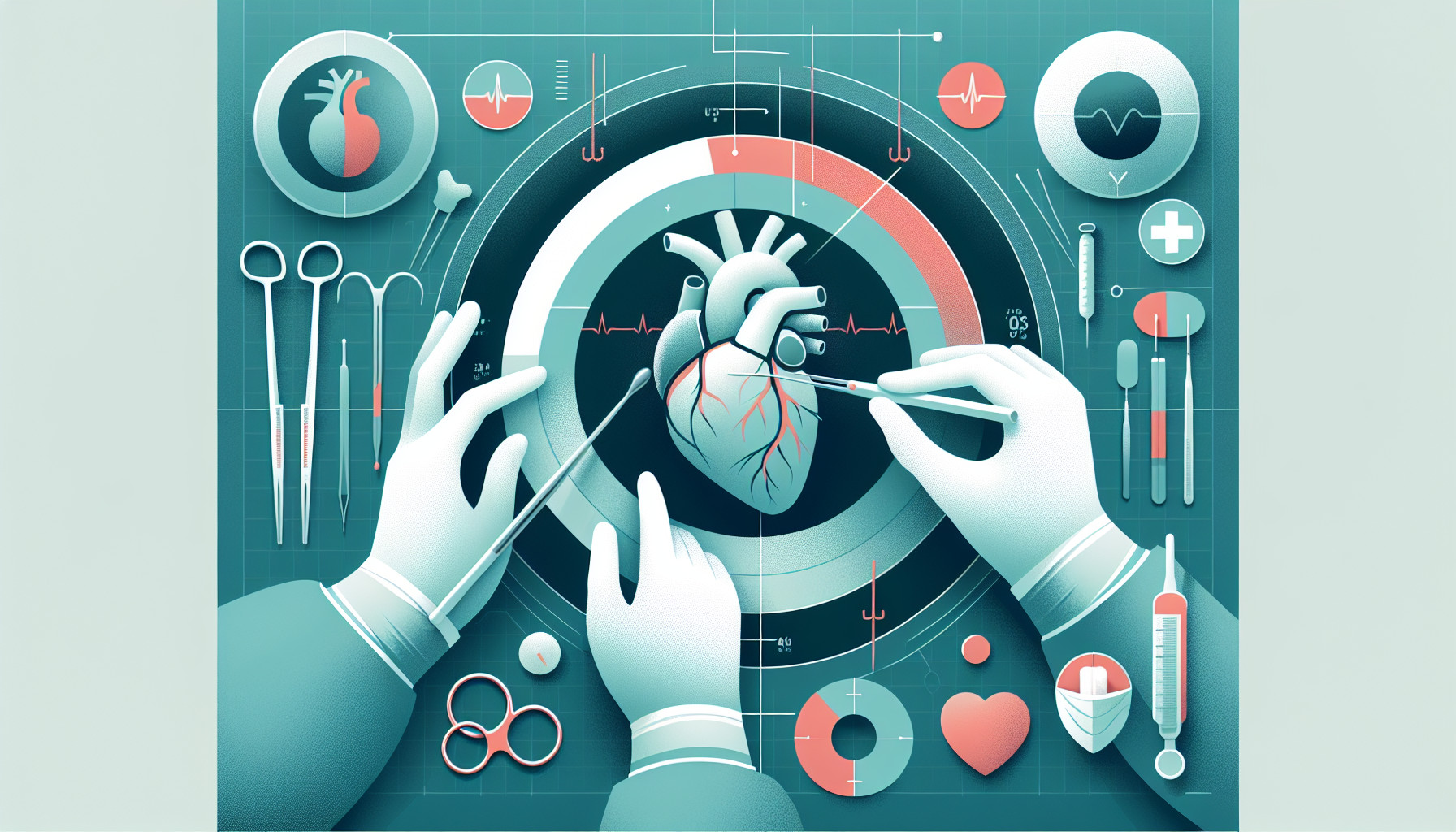Our Summary
This research paper talks about the advancements in surgical treatments for atrial fibrillation, a condition where the heart beats irregularly and often rapidly. The study suggests that the most effective surgical technique is the bi-atrial full maze procedure, a surgery that involves creating a ‘maze’ of new electrical pathways to let electrical impulses travel easily through the heart.
The paper indicates that this procedure can lead to significant benefits in terms of improving the heart’s rhythm and the patient’s survival, without adding any extra risks that come with surgery. The researchers also talk about the use of different energy sources in this surgical procedure, particularly radiofrequency and cryothermic energy (a technique that uses extreme cold).
The study also notes that with full bi-atrial lesion sets (a specific type of damage to the heart tissue), the success rate of converting irregular heartbeats to normal rhythm can be as high as 90%. Furthermore, the researchers suggest that bi-atrial cryoablation (a procedure that uses extreme cold to destroy abnormal heart tissue) in the full maze pattern can produce excellent results and may be simpler and more efficient.
The paper concludes by saying that the use of surgical ablation (a procedure that destroys abnormal heart tissue) for treating atrial fibrillation is growing with time across all types of heart surgeries. This is a positive trend as it is known to improve long-term survival rates.
FAQs
- What is the most effective approach for surgical ablation of atrial fibrillation?
- What are the alternative energy sources used in surgical ablation for atrial fibrillation?
- What are the potential benefits of bi-atrial cryoablation in the full maze pattern?
Doctor’s Tip
A helpful tip a doctor might tell a patient about cardiac ablation is to follow post-procedure care instructions carefully, including taking prescribed medications, attending follow-up appointments, and avoiding strenuous activities as recommended. It is also important to communicate any unusual symptoms or concerns to your healthcare provider promptly.
Suitable For
Patients who are typically recommended for cardiac ablation include those with atrial fibrillation, especially those who have not responded well to other treatments such as medication or cardioversion. Patients with certain types of arrhythmias, such as atrial flutter or supraventricular tachycardia, may also be candidates for cardiac ablation. Additionally, patients with structural heart disease, such as congenital heart defects or previous heart surgeries, may benefit from cardiac ablation to treat arrhythmias. Patients who have a high risk of stroke or other complications due to their arrhythmia may also be recommended for cardiac ablation.
Timeline
- Patient is diagnosed with atrial fibrillation (AF) and undergoes various treatments such as medications and lifestyle changes to manage symptoms.
- Patient experiences persistent or worsening AF symptoms despite treatment, leading to consideration of cardiac ablation as a potential treatment option.
- Patient undergoes pre-operative testing and evaluation to determine candidacy for cardiac ablation, including imaging studies and electrophysiology studies.
- Patient undergoes cardiac ablation procedure, which involves insertion of catheters into the heart to deliver energy (such as radiofrequency or cryothermic) to create lesions and disrupt abnormal electrical signals causing AF.
- Patient is monitored in the hospital post-procedure for complications and to ensure successful ablation.
- Patient is discharged home with instructions for recovery and follow-up appointments with their healthcare provider.
- Patient experiences a reduction in AF symptoms and improved quality of life post-ablation, with potential for long-term maintenance of normal heart rhythm.
- Patient continues to be monitored regularly for recurrence of AF and may require additional treatments or adjustments to medications as needed.
What to Ask Your Doctor
- What is cardiac ablation and how does it work to treat atrial fibrillation?
- What are the potential risks and complications associated with cardiac ablation?
- How successful is cardiac ablation in treating atrial fibrillation?
- What is the recovery process like after cardiac ablation?
- Are there any lifestyle changes or medications that will be necessary after the procedure?
- How long will the effects of cardiac ablation last?
- Are there any alternative treatment options to consider before deciding on cardiac ablation?
- How many cardiac ablation procedures have you performed and what is your success rate?
- What is the long-term outlook for someone who undergoes cardiac ablation for atrial fibrillation?
- What follow-up care will be needed after the procedure?
Reference
Authors: Alreshidan M, Roberts HG, Rankin JS, Wei LM, Badhwar V. Journal: Semin Thorac Cardiovasc Surg. 2019 Summer;31(2):141-145. doi: 10.1053/j.semtcvs.2019.02.026. Epub 2019 Feb 27. PMID: 30825589
